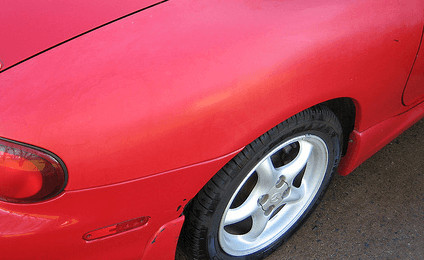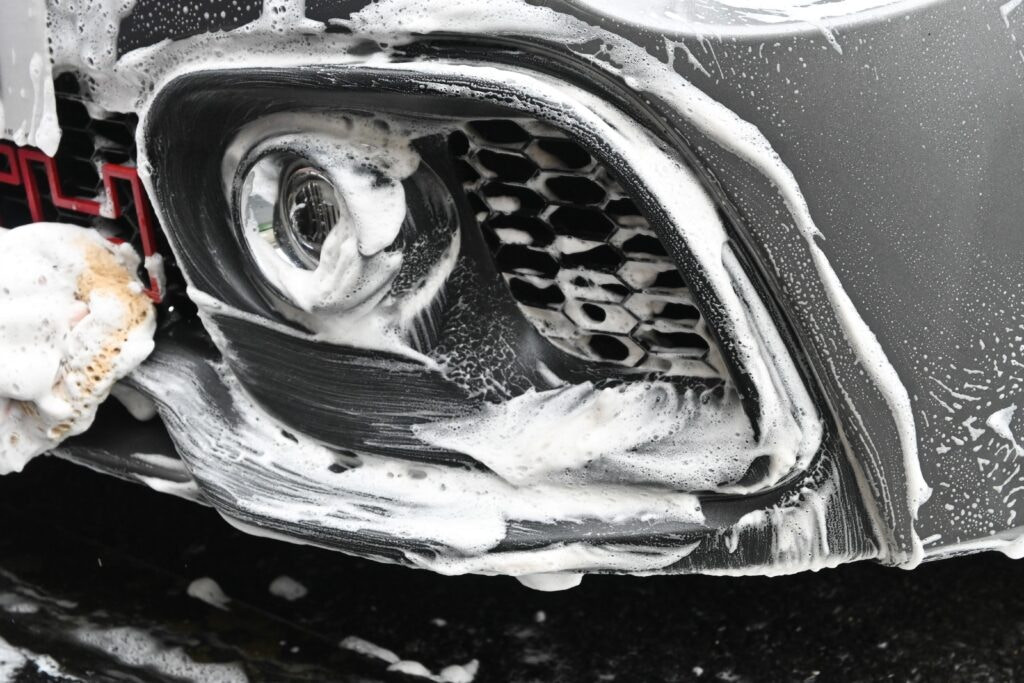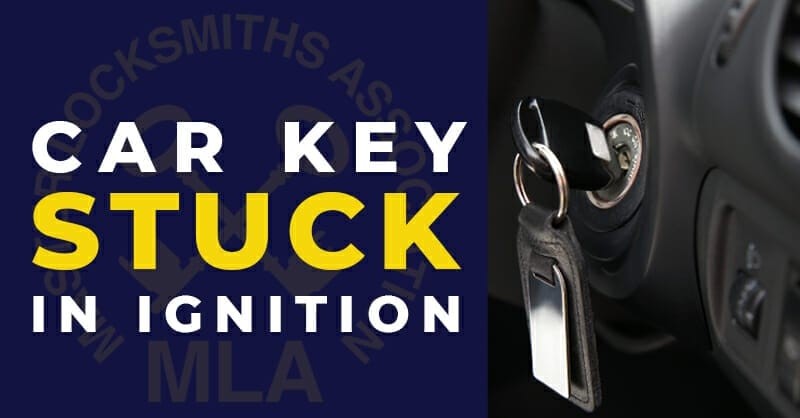How to Fix Deep Scratches to Metal on Car: A Detailed Guide
Deep scratches on your car’s metal surfaces are more than just cosmetic blemishes; they represent a gateway to potential rust and significant structural damage. At CARDIAGTECH.NET, we understand the importance of prompt and effective car scratch repair, preventing exposure to the elements and preserving your vehicle’s value. This comprehensive guide provides expert advice on how to address deep scratches, ensuring your car remains in pristine condition and ready for the road. Discover the best methods for metal scratch repair and safeguard your investment. Learn about automotive paint repair, paint protection film, and professional detailing services.
1. Understanding How Cars Acquire Deep Scratches
A vehicle encounters numerous potential hazards once it hits the road, making it susceptible to various forms of damage. Recognizing the common causes of deep scratches helps you take preventative measures and react swiftly when these issues arise.
1.1. Improper Washing Methods
One of the most frequent and avoidable causes of scratches is using incorrect washing techniques. Automatic car washes that employ worn-out brushes can trap dirt and abrasive particles, which then grind against your car’s surface, leading to the need for scratch repair.
1.2. Roadway Debris
While driving, especially at higher speeds, debris like rocks, gravel, and other particles can be propelled by the tires of other vehicles. These projectiles can cause significant scratches, particularly on the bumper, hood, and side panels.
1.3. Unintentional Contact
Accidents happen, and sometimes they result in scratches. Whether it’s a jacket zipper brushing against the car or inadvertently bumping into the vehicle with a sharp object, these everyday mishaps can lead to the need for detailing services.
1.4. Vandalism
Intentional damage is an unfortunate reality. Keying, or deliberately scratching a car with a sharp object, is a common form of vandalism that results in deep scratches requiring professional attention.
1.5. Collisions
Even minor collisions can lead to deep scratches that penetrate the paint layers down to the metal. The severity of these scratches often necessitates immediate repair to prevent rust and further degradation.
2. Identifying Types of Car Scratches
Effectively addressing deep scratches requires understanding the type and depth of the damage. Modern vehicle finishes consist of several layers, each serving a specific purpose. These include:
- Clear Coat: The top layer that provides protection and shine.
- Base Coat: The color layer that gives the car its unique appearance.
- Primer: The layer applied to prepare the metal surface for painting.
- Metal: The car’s actual body, which is prone to rust if exposed.
2.1. Clear Coat Scratches
These scratches are superficial, affecting only the outermost layer of paint. They are generally easy to repair using basic detailing techniques.
2.2. Paint Scratches
These scratches penetrate the clear coat and reach the base coat. Addressing these requires more intensive repair methods.
2.3. Deep Scratches Exposing Primer or Metal
These scratches are the most severe, exposing the primer or the underlying metal. Immediate attention is crucial to prevent rust and structural damage. The following steps will guide you through repairing these deep scratches.
3. Step-by-Step Guide: How to Repair Deep Scratches to Metal on Car
Repairing deep scratches that have reached the metal requires a careful and systematic approach. Follow these detailed steps to ensure a professional-quality repair.
3.1. Assessing the Damage Thoroughly
Before starting any repair work, thoroughly assess the scratch to determine the extent of the damage. If the scratch has exposed the bare metal, immediate action is necessary to prevent rust from forming.
3.2. Assembling the Necessary Tools and Materials
To effectively repair deep scratches, gather the following tools and materials:
| Tool/Material | Purpose | Approximate Cost | Where to Buy |
|---|---|---|---|
| 1000-Grit Sandpaper | To gently smooth out rough edges of the scratch. | $8-12 per pack | Auto parts stores, hardware stores |
| 2000-Grit Sandpaper | To create a smooth surface ready for painting. | $8-12 per pack | Auto parts stores, hardware stores |
| Touch-Up Paint | To match your car’s specific color and fill in the scratch. | $10-25 per bottle | Auto parts stores, car dealerships |
| Primer | To create an adhesive surface for the paint and protect the metal from rust. | $8-15 per can | Auto parts stores, hardware stores |
| Rubbing Compound | To remove imperfections and blend the repair with the surrounding paint. | $10-20 per bottle | Auto parts stores, hardware stores |
| Car Polish | To restore shine and protect the repaired area. | $10-20 per bottle | Auto parts stores, hardware stores |
| Microfiber Cloths | To clean, buff, and polish surfaces without scratching. | $8-15 per pack | Auto parts stores, hardware stores |
| Masking Tape and Paper | To protect surrounding areas from accidental sanding or painting. | $10-15 per roll | Auto parts stores, hardware stores |
| Small Paintbrush/Pen | To apply touch-up paint precisely to the scratched area. | $5-10 each | Art supply stores, auto parts stores |
| Safety Glasses & Gloves | To protect eyes and hands during the sanding and chemical application processes. | $15-25 | Hardware stores, safety equipment stores |
Note: Prices may vary based on brand and location.
3.3. Thoroughly Cleaning the Affected Area
Begin by thoroughly cleaning the scratched area with soap and water. Remove any dirt, wax, or grease that could interfere with the repair process. Use a degreasing agent for stubborn residues.
3.4. Sanding the Scratch Gently
Using 1000-grit sandpaper, gently sand the scratch to smooth out any rough edges. Be careful to apply even pressure and avoid sanding beyond the immediate area of the scratch. Follow up with 2000-grit sandpaper to refine the surface.
3.5. Applying Primer to Exposed Metal
If the scratch has exposed the bare metal, apply a thin, even coat of primer. This will help the paint adhere properly and prevent rust formation. Allow the primer to dry completely before proceeding.
3.6. Applying Touch-Up Paint in Thin Layers
Carefully apply the touch-up paint to the scratched area, using a fine-tipped brush or touch-up pen. Apply several thin layers, allowing each layer to dry before applying the next. This prevents drips and ensures a uniform finish.
3.7. Sanding the Painted Area to Blend
Once the paint is fully dry, use 2000-grit sandpaper to lightly sand the painted area, blending it with the surrounding surface. Be gentle and use a sanding block to ensure even pressure.
3.8. Buffing the Repaired Area to Remove Imperfections
Apply a small amount of rubbing compound to a microfiber cloth and gently buff the area using circular motions. This will remove any remaining imperfections and blend the repair with the surrounding paint.
3.9. Polishing the Surface to Restore Shine
Finally, apply car polish to the repaired area to restore shine and protect the finish. Use a clean microfiber cloth to apply the polish in circular motions until the surface shines.
4. When to Seek Professional Assistance for Car Scratch Repair
While DIY scratch repair can be effective for minor damage, certain situations require the expertise of professionals. If the scratch is extensive, deep, or located in a complex area, it’s best to consult with a professional detailing shop like those recommended by CARDIAGTECH.NET. Professionals have the tools, skills, and experience to ensure a flawless finish.
5. Preventative Measures to Avoid Future Scratches
After successfully repairing deep scratches, taking steps to prevent future damage is crucial. Here are several strategies to consider:
5.1. Employ Proper Car Washing Techniques
Avoid automatic car washes that use harsh brushes. Instead, hand-wash your car using a microfiber mitt and high-quality car wash soap. This minimizes the risk of introducing new scratches during cleaning.
5.2. Apply Paint Protection Film (PPF)
Consider applying a paint protection film to high-risk areas such as the hood, bumper, and door edges. This clear film provides an extra layer of defense against road debris and minor impacts.
5.3. Practice Strategic Parking
Whenever possible, park in a garage or shaded area to protect your car from environmental hazards like tree branches and falling objects. If parking outdoors, avoid tight spaces where other vehicles might brush against your car.
6. The Significance of Regular Car Maintenance
Regular maintenance is essential for preserving your car’s appearance and preventing deep scratches from recurring.
6.1. Schedule Regular Detailing Appointments
Routine detailing can maintain your car’s paint finish and address minor issues before they escalate. Professional detailing can keep your car looking new.
6.2. Wax Your Car Regularly
Apply a coat of high-quality wax every few months to protect your car’s paint. Wax acts as a barrier against environmental contaminants and makes it easier to clean your car.
6.3. Keep Touch-Up Paint On Hand
Keep a touch-up paint kit on hand for quick fixes. Addressing minor scratches as soon as they occur can prevent them from worsening.
7. Why You Should Not Delay Car Scratch Repairs
Prompt action is critical when dealing with deep scratches. Untreated scratches can lead to rust, compromising your vehicle’s structural integrity. Whether you choose DIY or professional repair, addressing the issue promptly saves time and money in the long run.
CARDIAGTECH.NET recommends addressing scratches immediately to prevent further damage and maintain your vehicle’s value. Contact us at +1 (641) 206-8880 or visit our website at CARDIAGTECH.NET for expert advice and product recommendations. Our location is 276 Reock St, City of Orange, NJ 07050, United States.
8. Superior Automotive Repair Tools at CARDIAGTECH.NET
At CARDIAGTECH.NET, we understand that having the right tools can significantly improve the efficiency and quality of your car scratch repairs. Our selection of professional-grade tools is designed to meet the needs of both experienced technicians and DIY enthusiasts.
8.1. Precision Sanding Blocks
Our sanding blocks are engineered for even pressure distribution, ensuring a smooth, consistent finish without damaging surrounding paint. Made from high-quality materials, they offer durability and comfort for extended use.
8.2. High-Quality Microfiber Cloths
We offer premium microfiber cloths that are ultra-soft and lint-free, perfect for cleaning, buffing, and polishing your car’s surface. These cloths are designed to prevent scratches and provide a streak-free shine.
8.3. Professional-Grade Rubbing Compounds and Polishes
Our rubbing compounds and polishes are formulated to remove imperfections and restore your car’s paint to its original luster. They are easy to apply and deliver professional results, ensuring a flawless finish.
8.4. Touch-Up Paint Kits with Exact Color Matching
Our touch-up paint kits are custom-matched to your car’s specific color, ensuring a seamless repair that blends perfectly with the surrounding paint. Each kit includes applicators and detailed instructions for easy and effective use.
8.5. Protective Gear for Safe Repairs
Safety is paramount, and we offer a range of protective gear, including safety glasses and gloves, to ensure you can perform repairs safely and comfortably. Our gear is designed to provide maximum protection without compromising dexterity.
Purchasing your tools and materials from CARDIAGTECH.NET ensures you receive high-quality products that deliver exceptional results. Our commitment to quality and customer satisfaction makes us the preferred choice for automotive repair tools.
9. Understanding the Financial Aspects of Car Scratch Repairs
Knowing the costs associated with car scratch repairs can help you make informed decisions about whether to tackle the job yourself or seek professional help. Here’s a breakdown of potential expenses:
| Repair Type | DIY Cost (Materials Only) | Professional Cost | Description |
|---|---|---|---|
| Minor Clear Coat Scratches | $20 – $50 | $50 – $150 | Superficial scratches that can be easily buffed out with basic detailing supplies. |
| Paint Scratches (Base Coat) | $50 – $100 | $150 – $300 | Scratches that penetrate the clear coat and reach the base coat, requiring touch-up paint and more intensive methods. |
| Deep Scratches (Primer/Metal) | $100 – $200 | $300 – $700+ | Scratches that expose the primer or metal, necessitating sanding, priming, painting, and polishing to prevent rust and restore the finish. |
| Extensive Damage/Multiple Scratches | N/A | $700 – $2000+ | Significant damage requiring panel replacement, extensive body work, and repainting, often resulting from collisions or vandalism. |
| Paint Protection Film (PPF) | $100 – $300 (DIY Kit) | $500 – $1500+ | Applying a protective film to prevent future scratches and damage, with professional installation providing better coverage and longevity. |
Note: These costs are estimates and can vary based on location, the extent of the damage, and the type of vehicle.
9.1. Cost-Effective Solutions with CARDIAGTECH.NET
CARDIAGTECH.NET offers a range of affordable and high-quality tools and materials that allow you to perform many scratch repairs yourself, saving you money while achieving professional-quality results. Our products are designed for ease of use and durability, ensuring you get the best value for your investment.
9.2. Professional Services
While DIY repairs can be cost-effective, professional services offer the expertise and equipment needed to handle more complex damage. Factors that influence the cost of professional repairs include:
- Extent of the Damage: More extensive scratches require more time and materials to repair.
- Type of Vehicle: Luxury or high-end vehicles may have higher repair costs due to specialized paint and bodywork requirements.
- Location: Labor rates vary by region, affecting the overall cost of the repair.
By understanding these financial aspects, you can make an informed decision about how to proceed with your car scratch repairs, ensuring you choose the most effective and budget-friendly option.
10. Leveraging CARDIAGTECH.NET for Optimal Car Care and Tool Investment
At CARDIAGTECH.NET, we understand the challenges faced by automotive technicians and garage owners. We are dedicated to providing solutions that enhance efficiency, precision, and profitability.
10.1. Addressing Customer Challenges
We recognize that automotive work can be physically demanding, often involving exposure to grease and chemicals. Our tools are designed for comfort and durability, reducing strain and increasing productivity. We also know that staying current with automotive technology is crucial, so we offer a range of diagnostic tools and equipment that support the latest advancements in the industry.
10.2. Meeting Customer Needs
Our services are tailored to meet the specific needs of our clients. We offer tools that improve job efficiency, reduce repair times, and enhance accuracy and safety. By using our products, you can save on repair costs, increase revenue, and build a reputation for quality service.
10.3. Call to Action
Ready to elevate your automotive repair capabilities? Contact CARDIAGTECH.NET today at +1 (641) 206-8880 for a consultation. Our team can help you select the perfect tools and equipment to meet your needs and exceed your expectations. Visit our website at CARDIAGTECH.NET or stop by our location at 276 Reock St, City of Orange, NJ 07050, United States, to explore our full range of products.
FAQ: Addressing Common Questions About Car Scratch Repair
1. What is the best way to fix deep scratches on a car?
The best method involves cleaning, sanding, applying primer if needed, using touch-up paint, and finishing with rubbing compound and polish.
2. Can I use toothpaste to remove scratches from my car?
Toothpaste may temporarily reduce the appearance of very fine scratches, but it is not a long-term solution and may damage the paint.
3. How much does it cost to repair a deep scratch on a car?
DIY repairs can range from $100 to $200, while professional repairs can cost between $300 and $700 or more, depending on the severity.
4. What tools do I need to fix a deep scratch on my car?
Essential tools include sandpaper, touch-up paint, primer, rubbing compound, car polish, microfiber cloths, and masking tape.
5. How can I prevent scratches on my car?
Use proper washing techniques, apply paint protection film, and park strategically to avoid potential hazards.
6. Is it better to repair a scratch myself or take it to a professional?
For minor scratches, DIY repair is feasible. However, deep or extensive scratches are best handled by professionals for a flawless finish.
7. What is paint protection film (PPF) and how does it help?
PPF is a clear film applied to the car’s surface to protect against scratches, chips, and environmental damage.
8. How often should I wax my car to protect the paint?
Waxing your car every few months provides a protective barrier against contaminants and helps maintain the paint’s shine.
9. Can rust form under a scratch if it’s not repaired?
Yes, if a scratch exposes the metal, rust can form over time, leading to further damage.
10. Where can I find quality tools and materials for car scratch repair?
CARDIAGTECH.NET offers a wide range of high-quality tools and materials designed for effective and professional car scratch repair.
Conclusion
Repairing deep scratches on car surfaces is essential for maintaining your vehicle’s value and appearance. Whether you choose a DIY approach or opt for professional services, addressing these scratches promptly prevents further damage and keeps your car looking its best. Follow the steps outlined in this guide and take preventative measures to avoid future scratches. With the right care and attention, your car will continue to shine for years to come.
CARDIAGTECH.NET is your trusted partner for all automotive repair needs. Contact us today to discover how our products and services can help you achieve optimal results.
Contact Information:
- Address: 276 Reock St, City of Orange, NJ 07050, United States
- WhatsApp: +1 (641) 206-8880
- Website: CARDIAGTECH.NET





